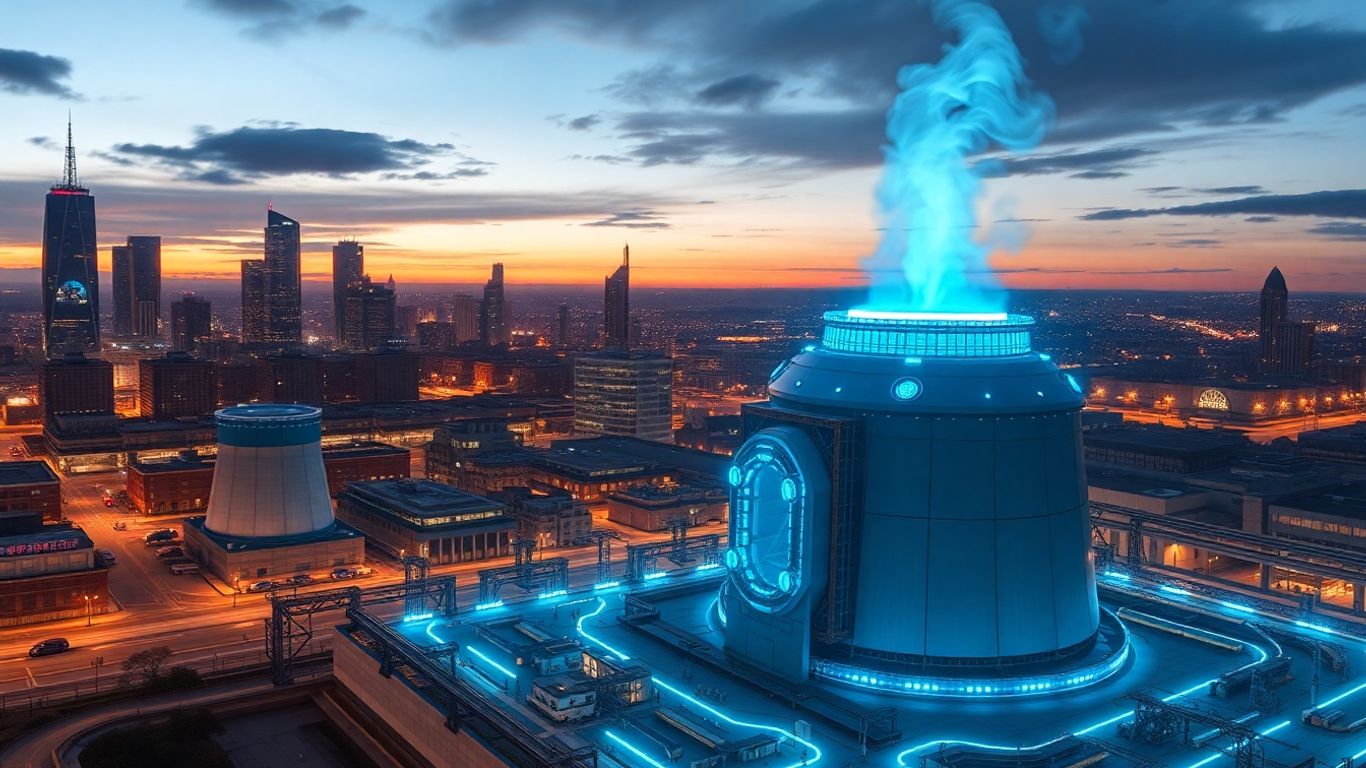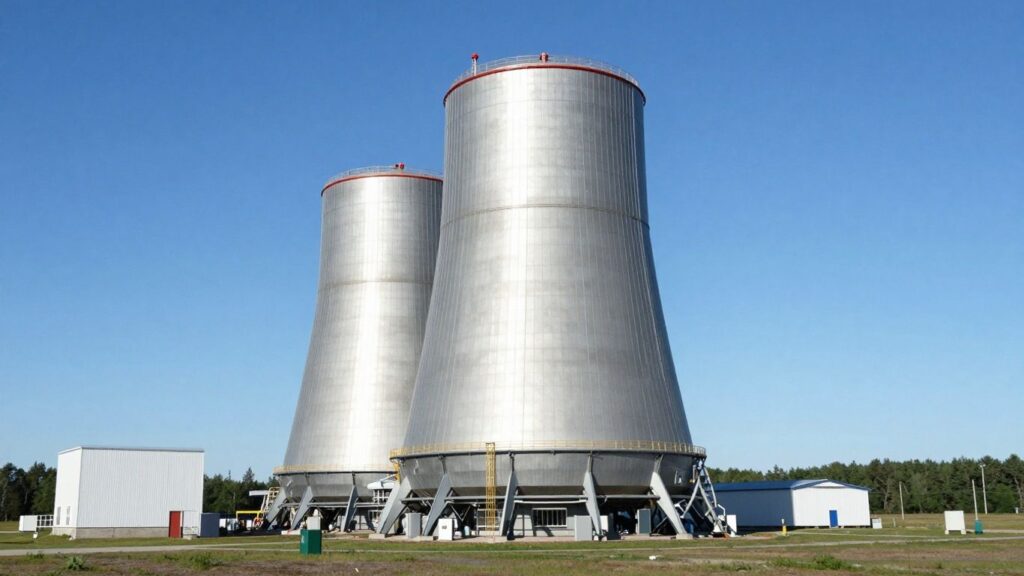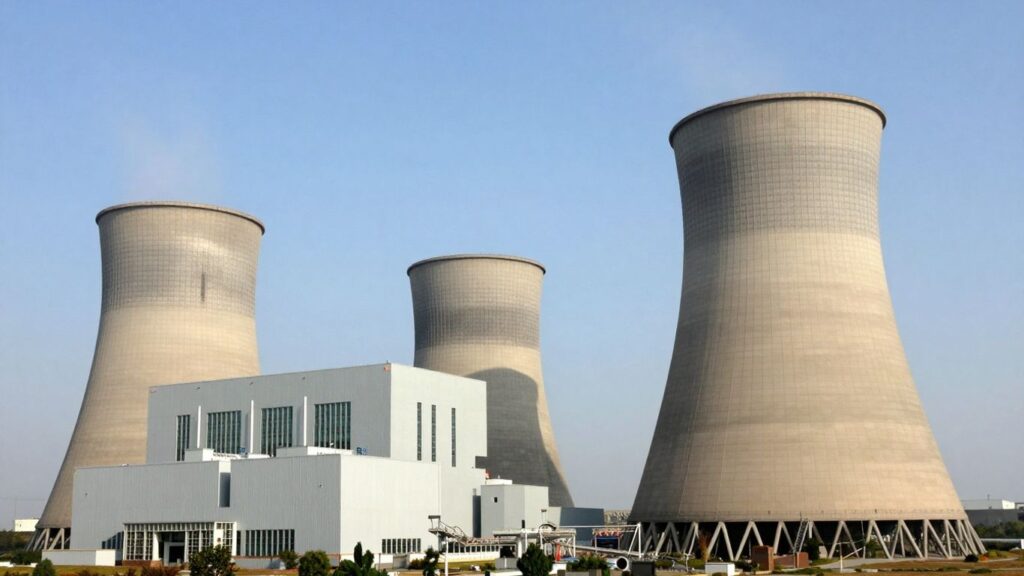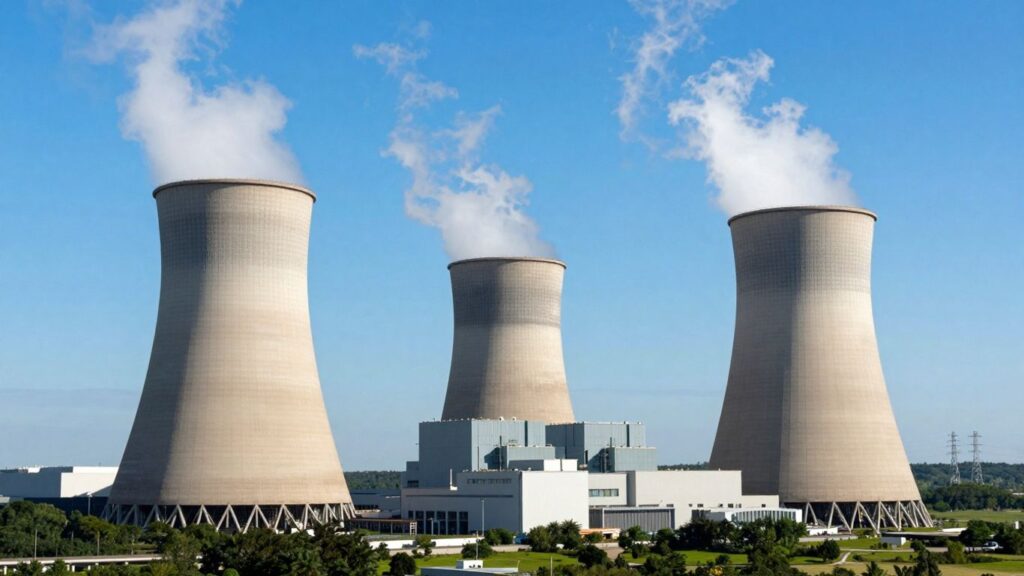The United States is making significant strides in deploying Small Modular Reactors (SMRs), with the Tennessee Valley Authority (TVA) leading the charge by submitting the nation’s first construction permit application for an SMR. This move, coupled with substantial government funding and evolving regulatory frameworks, signals a new era for advanced nuclear energy in the U.S.
Key Takeaways
- The Tennessee Valley Authority (TVA) is the first U.S. utility to apply for a construction permit for a Small Modular Reactor (SMR).
- The U.S. Department of Energy (DOE) is providing significant funding to support SMR development and deployment.
- The Nuclear Regulatory Commission (NRC) is actively reviewing SMR applications, with potential for expedited approvals.
- SMR technology, like GE Vernova Hitachi’s BWRX-300, offers advantages in safety, efficiency, and a smaller environmental footprint.
A Historic Regulatory Step
The U.S. Nuclear Regulatory Commission (NRC) has accepted a construction permit application from the Tennessee Valley Authority (TVA) for one of the nation’s first SMRs. TVA submitted its application to build GE Vernova Hitachi’s BWRX-300 design at its Clinch River site near Oak Ridge, Tennessee. This application marks a critical step, potentially paving the way for other utilities interested in deploying similar technology. The NRC’s acceptance moves the project into its next phase of review, which includes a full safety assessment before construction can commence.
TVA has already secured the nation’s first early site permit for an SMR, with support from the U.S. Department of Energy, having cleared the environmental review process. TVA anticipates that preliminary site preparation could begin as early as next year while the NRC conducts its review. The utility aims for the SMR to be operational by late 2032.
Government Funding and Support
The U.S. Department of Energy (DOE) is actively supporting the advancement of SMRs, with a $900 million funding initiative aimed at de-risking their deployment. This funding, part of federal efforts to foster a "nuclear energy renaissance," is intended to meet rising power demands, particularly from data centers and other large industrial users. The program targets Generation III+ light-water SMRs, prioritizing designs that are reliable, licensable, and commercially viable, with clear paths toward multiple commercial orders.
While the DOE has removed mandatory community benefit plans from its evaluation criteria to streamline the process, experts suggest that developers will still seek community support. The funding is divided between supporting "first mover" projects and "fast follower" projects that address earlier-stage development challenges.
The BWRX-300 Technology
The BWRX-300, developed by GE Vernova Hitachi, is a 300-megawatt-electric advanced light-water reactor. It is described as a smaller, simplified version of GE Vernova Hitachi’s licensed Economic Simplified Boiling Water Reactor. This design leverages established supply chains and proven components, aiming to accelerate deployment. Its modular construction, similar to assembling a "Lego set," allows for greater flexibility in siting compared to traditional nuclear plants. The BWRX-300 also features passive safety systems, enhancing its safety profile.
TVA’s initiative with the BWRX-300 is part of a global collaboration, including a partnership with Ontario Power Generation, which is also deploying the BWRX-300 at its Darlington site in Canada. This collaboration aims to expedite technology development for both the United States and Canada.
Future Outlook
The progress in SMR deployment reflects a renewed interest in nuclear power, driven by the need for clean, reliable energy. While challenges related to cost and financing remain, government support and regulatory advancements are creating a more favorable environment for SMRs. The success of projects like TVA’s could indeed set a precedent, encouraging further investment and accelerating the adoption of this next-generation nuclear technology across the nation.
Sources
- NRC Dockets Construction Permit Application for TVA Small Modular Reactor, Department of Energy (.gov).
- TVA’s Progress Towards Small Modular Reactor | Local News, Local 3 News.
- For the first time, a U.S. utility seeks permit to build small modular reactor, Power Engineering.
- U.S. Pushes $900M for Small Modular Reactors. Is That Enough?, IEEE Spectrum.
- Federal funding for first small reactors survives cuts, Reuters.












